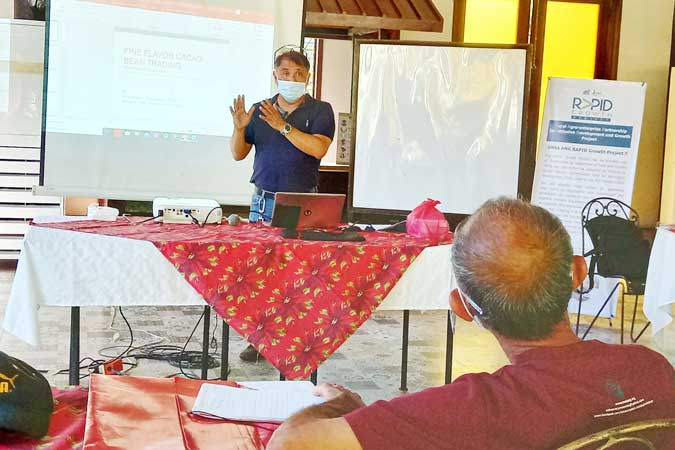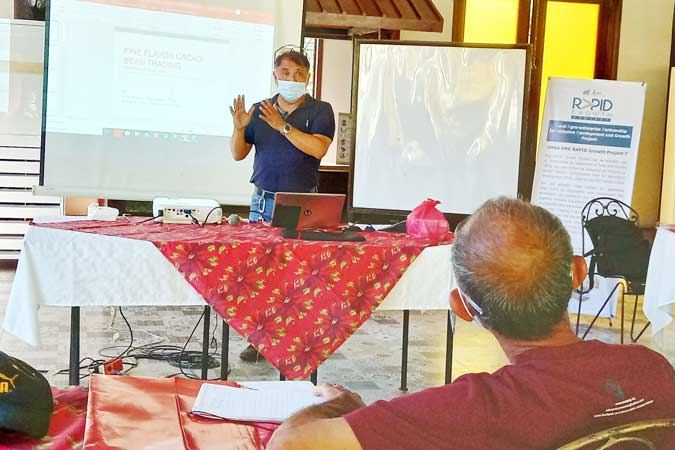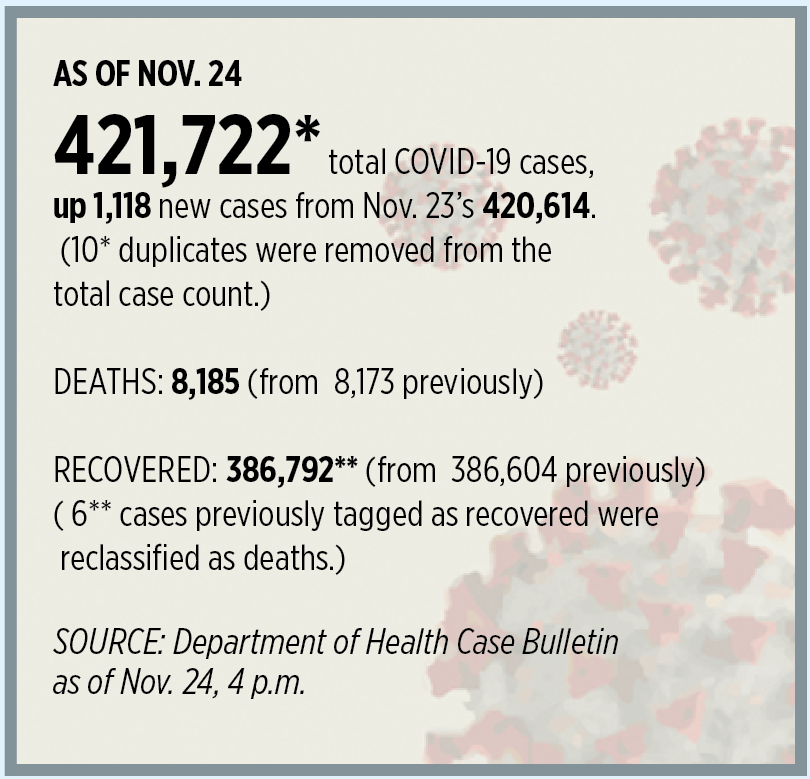Quezon farmers, fisherfolk get P1.42-B aid from DA
THE DEPARTMENT of Agriculture (DA) distributed P1.42 billion worth of assistance to farmers and fisherfolk in Quezon province who were affected by recent typhoons while their livelihoods have been weakend by the coronavirus disease 2019 (COVID-19) pandemic. During his visit to Quezon province on Monday, Agriculture Secretary William D. Dar said among the interventions given include P177 million under the P4.5 billion cash and food subsidy for marginal farmers and fisherfolk program funded by Republic Act No. 11494 or the Bayanihan to Recover as One Act. “The Province of Quezon and the whole Region of CALABARZON (Cavite, Laguna, Batangas, Rizal, and Quezon) are very important to our agricultural economy. The region continues to showcase agri-industrialization in many ways, but of course you will need to have continuous production, and a value-adding agri-business approach will be critical,” Mr. Dar said. DA Regional Director Arnel V. de Mesa said there will be around 80,000 beneficiaries in the entire CALABARZON, including 35,523 farmers in Quezon. In addition, the Philippine Center for Postharvest Development and Mechanization gave P304 million worth of farm machinery, the Philippine Coconut Authority allotted P35 million worth of farm inputs and a coconut-dairy intercropping project, and the Bureau of Fisheries and Aquatic Resources gave P118 million for the province’s fisherfolk. The DA regional office gave P640 million worth of agricultural inputs and facilities, including the establishment of cold storages in Candelaria and Tayabas, and a trading post in Sariaya. Quezon farmers can also avail of zero interest loans from the Agricultural Credit and Policy Council worth P147.8 million, according to Mr. Dar. “With the help of everyone, our country will recover. The agriculture sector will play a huge role in the recovery of the country’s economy,” he said. — Revin Mikhael D. Ochave
Davao City taps SGV for investor guide
THE Davao City government has tapped SyCip Gorres Velayo & Company for the development of a guide for local and foreign investors, including micro, small, and medium enterprises (MSMEs). Christian D. Cambaya, unit head of the Investors Assistance and Servicing Unit of the Davao City Investment and Promotions Center (DCIPC), said the “Doing Business in Davao” brochure will be a concise and comprehensive source of information on business options in the city, even amid the coronavirus pandemic. “Likewise, the guide also provides vital information on the tax incentives/exemption offered by the local government to MSMEs,” Mr. Cambaya said. The guide is targeted for launch before the end of the year. — Maya M. Padillo
Davao Oriental cacao farmers get skills, knowledge upgrade from Malagos

SEVEN cacao farmer organizations in Davao Oriental have undergone skills and knowledge enhancement training from Davao City-based Puentespina Farms, maker of the award-winning Malagos Chocolate. In a statement on Tuesday, the Department of Trade and Industry said the five-day training was implemented under its Rural Agro-enterprise Partnership for Inclusive Development and Growth (RAPID Growth) Project. The participants also received an orientation on Good Agricultural Practices, process requirements from the Department of Agriculture’s Regulatory Division as part of the project’s package of assistance. The cooperatives are also beneficiaries of the Philippine Rural Development Program, a World Bank-funded program implemented by the Agriculture department, which provided cacao post-harvest facilities that were turned over in July. Puentespina Farms will also forge a marketing deal with the cooperatives, which will include continuing technical support through the Malagos Cacao Development Center. “If there’s proper technology transfer, the farmers could get a premium price for their produce, since they are targeting to provide and offer fine cacao both to the local and international markets,” Puentespina Farms owner Charita Puentespina said. Davao Oriental currently has 5,291 hectares planted to cacao with another 2,658 hectares available for expansion, according to the provincial government’s website. There are over 4,900 farmers involved in the sector with an existing annual production capacity of 3,191 metric tons. Governor Nelson L. Dayanghirang, during the post-harvest facilities turn-over ceremony, said the provincial government will continue to support cacao development as an additional income for farmers, especially those dependent on coconut production. “We don’t want our farmers to rely solely on coconut. Currently, we are embattled with the low price of copra. We must be resourceful to augment our income, try other possible means, like intercropping cacao,” he said.

